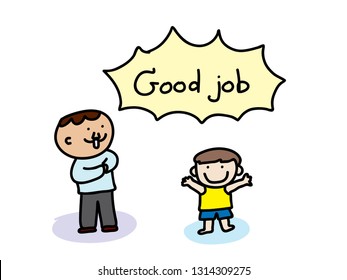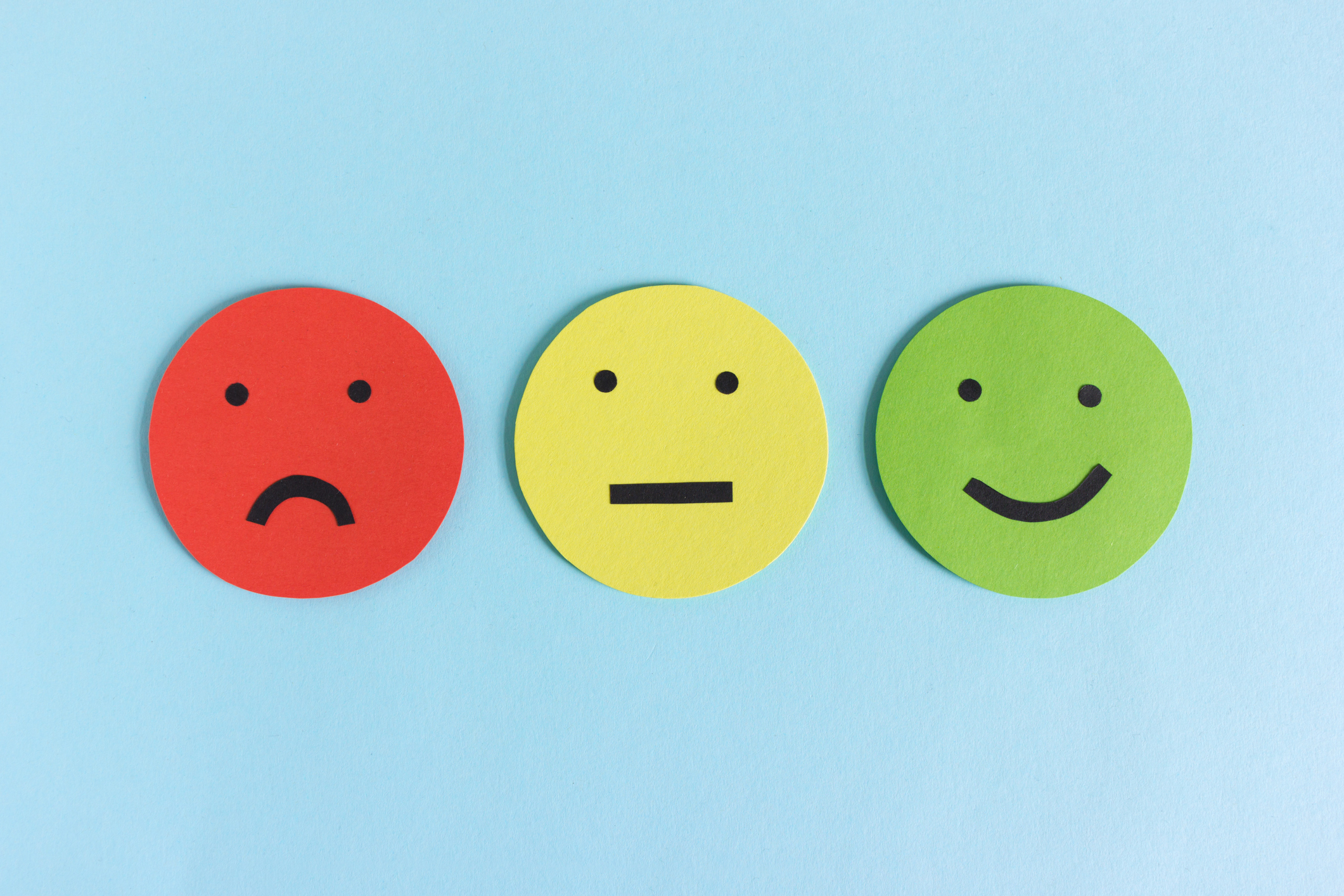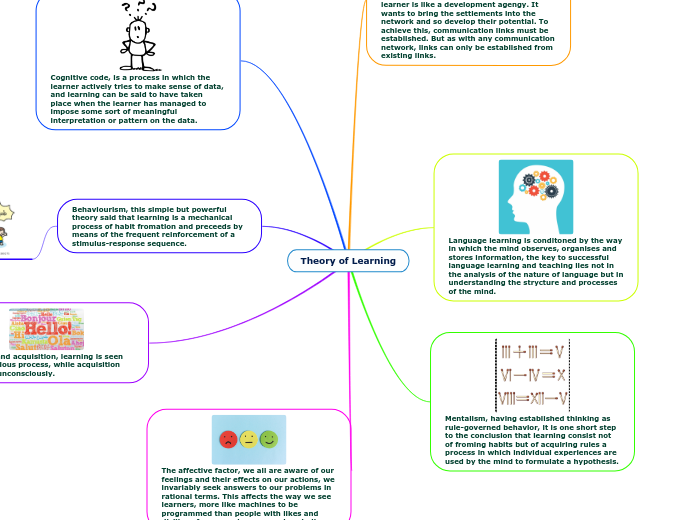Theory of Learning

A model for learning, the mind of the learner is like a development agengy. It wants to bring the settlements into the network and so develop their potential. To achieve this, communication links must be established. But as with any communication network, links can only be established from existing links.

Language learning is conditoned by the way in which the mind observes, organises and stores information, the key to successful language learning and teaching lies not in the analysis of the nature of language but in understanding the strycture and processes of the mind.

Mentalism, having established thinking as rule-governed behavior, it is one short step to the conclusion that learning consist not of froming habits but of acquiring rules a process in which individual experiences are used by the mind to formulate a hypothesis.

Cognitive code, is a process in which the learner actively tries to make sense of data, and learning can be said to have taken place when the learner has managed to impose some sort of meaningful interpretation or pattern on the data.
Behaviourism, this simple but powerful theory said that learning is a mechanical process of habit fromation and preceeds by means of the frequent reinforcement of a stimulus-response sequence.


Learning and acquisition, learning is seen as a conscious process, while acquisition proceeds unconsciously.

